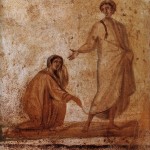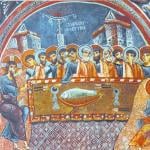The miracle of the loaves and fishes is one of the ones that I’d heard before I ever considered becoming Catholic. But I’d always heard about it in isolation, as just one in a series of extraordinary (but interchangeable) events. This past Sunday, the story came up in the Gospel reading, but, this time, the story started a little earlier than I expected, which gave me some additional context: When Jesus heard of the death of John the Baptist, he... Read more




















